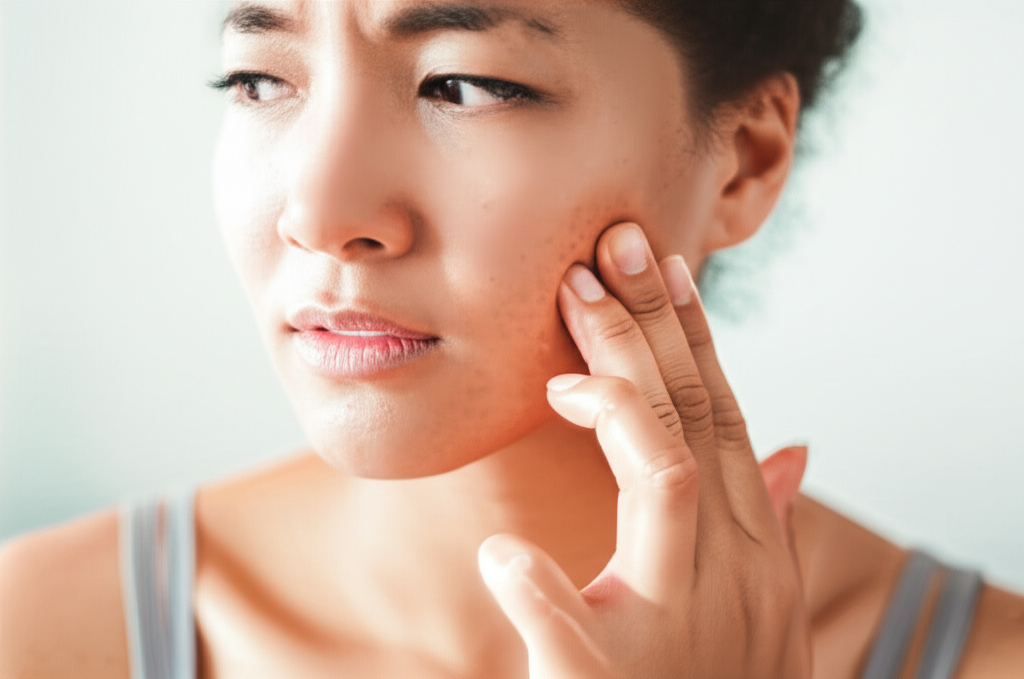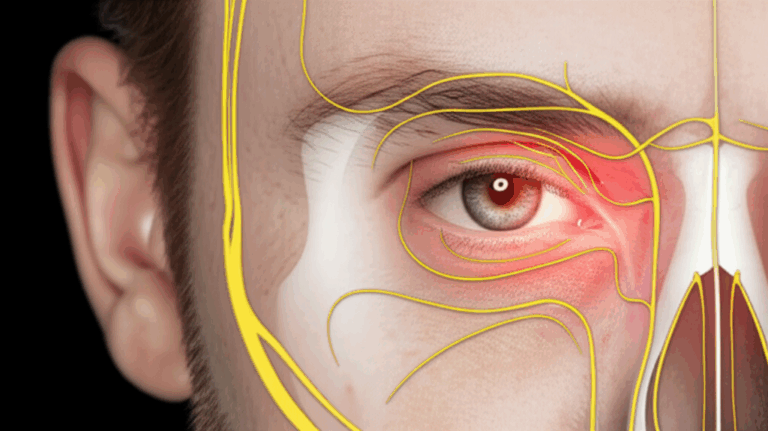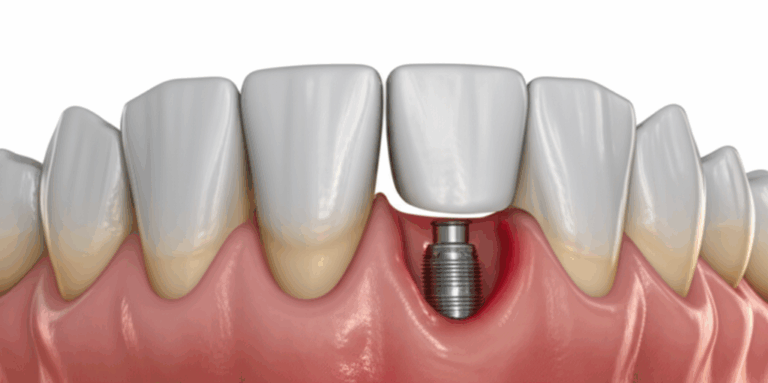
Can Dental Problems Cause Facial Tingling? Understanding the Connection & What to Do
Do you feel a weird tingling or numbness in your face? You’re probably worried and wondering if your teeth or gums could be the reason. This article shows how problems with your teeth can make your face tingle, what signs to look out for, and what you can do to feel better. If you want clear answers and simple steps, keep reading!
Table of Contents
- What Does Facial Tingling Feel Like?
- Can Dental Issues Really Cause Facial Tingling?
- How Does the Trigeminal Nerve Work?
- Which Dental Problems Can Cause Tingling in the Face?
- What Symptoms Often Happen With Facial Tingling?
- When Should You See a Dentist or Doctor?
- How Do Dentists Find Out the Cause of Tingling?
- What Are the Treatments for Dental-Related Facial Tingling?
- How Can You Prevent Dental Problems and Nerve Issues?
- Summary: Key Things To Remember
What Does Facial Tingling Feel Like?
Facial tingling can feel strange. Sometimes it feels like pins and needles. Other times, your skin might feel kind of numb or even burn a little. The first time it happened to me, I thought maybe I just slept weird or was tired. Sometimes the feeling comes and goes. Sometimes, it sticks around.
You might think you bumped your face or have some odd allergy. But did you know your teeth and gums can actually be the real problem? A lot of people never guess that dental problems could cause numbness in your cheek, jaw, or even lips.
Can Dental Issues Really Cause Facial Tingling?
The short answer—yes, dental problems can make your face tingle. This happens more often than you might think. Here’s why it matters:
- Your teeth and gums have a lot of nerves. One of the most important, the trigeminal nerve, gives feeling to almost your whole face.
- If a dental infection, abscess, or a tricky tooth pushes on this nerve, you’ll feel things like tingling, numbness, or even sharp pain.
- Sometimes it’s not just one tooth causing trouble. Problems with your jaw joint or gums can also bother those nerves.
I remember when one of my wisdom teeth got infected. Along with jaw pain, I noticed a weird tingling in my chin. My dentist wasn’t shocked. He said some teeth, especially in the lower jaw, sit really close to the nerves that give feeling to your lips and face.
In short: Don’t ignore weird feelings in your face—they might be your mouth’s way of saying, “Please help!”
How Does the Trigeminal Nerve Work?
Let’s make it easy. The trigeminal nerve is like a main road for feeling in your face. It has three big parts:
| Branch Name | Areas Covered | Common Dental Links |
|---|---|---|
| Ophthalmic | Forehead, upper lids | Rarely bothered by dental problems |
| Maxillary | Cheeks, upper teeth | Sinus infections, top tooth issues |
| Mandibular | Lower jaw, chin | Tooth infection, wisdom teeth, work |
Any tooth or gum problem near these parts can bug the nerve, making your face feel odd. Dentists see this a lot—sometimes after tooth injury, sometimes from infections, or after dental work.
When people get tingling in the face, this nerve is often the cause.
Which Dental Problems Can Cause Tingling in the Face?
I was surprised how many types of dental problems can make your face tingle or go numb. Here are the biggest causes:
A. Dental Abscesses and Infections
- What happens? When a tooth gets infected, pus and swelling can push on nearby nerves, especially if the infection spreads to your jaw.
- What does it feel like? Throbbing toothache, swelling, bad taste in your mouth, sometimes a fever.
- Why does it matter? If you ignore it, an abscess can hurt nerves and even spread.
Fun fact: About 3 out of 10 bad dental abscesses in the lower jaw cause pain or tingling in the chin or lower cheek.
B. TMJ Problems (Jaw Joint Issues)
- What happens? The jaw joint (called the temporomandibular joint or TMJ) sits close to big nerves. If the joint gets sore or moved out of place, nerves get squeezed.
- What does it feel like? Jaw pain, clicking or popping sounds, headaches, sometimes tingling in front of the ear or on your cheek.
- Why does it matter? About 1 in 10 to 1 in 7 people with TMJ problems have tingling or burning in the face.
C. Wisdom Tooth Problems
- What happens? Wisdom teeth, especially on the bottom, can get stuck (impacted) or infected, and are very close to the main nerves.
- What does it feel like? Swelling, pain, sometimes numbness or tingling after taking the tooth out or if the nerve gets touched during surgery.
- Why does it matter? Temporary tingling happens in about 1 of every 10 after lower wisdom tooth removal, but ongoing numbness is rare.
D. Root Canal Issues
- What happens? Sometimes, during a root canal, tools or medicine can get too close to the nerves. Or, the infection wasn’t totally cleaned out.
- What does it feel like? Ongoing pain, sensitivity, tingling mostly near the fixed tooth.
- Why does it matter? This is rare—less than 1 in 100—but if it does happen, a dentist can usually help the nerve heal.
Want to know more? See our Teeth Information page for more about tooth infections and nerve care.
E. Dental Procedures and Injuries
- Having a shot of numbing medicine, breaking a tooth, or getting hit in the jaw can all bother nearby nerves.
- Most tingling after dental work goes away in a few hours or days, but sometimes lasts longer, especially after tough extractions or implants.
F. Sinus Infections That Start from the Mouth
- Upper teeth have roots close to your sinus spaces. A bad tooth infection can spread into the sinuses, causing pressure and tingling in your cheek, nose, or upper lip.
G. Other Dental Causes
- Cysts or lumps in the jawbone may press on face nerves.
- Bad gum disease (periodontitis) can slowly eat away bone near nerves, causing odd feelings.
- Tooth grinding (bruxism), uneven teeth (malocclusion), or poor dental work can sometimes bug nerves and cause face tingling.
What Symptoms Often Happen With Facial Tingling?
Don’t just look at tingling by itself. Other signs give good hints. I always tell people to watch for these:
- Pain: Dull, pounding, or sharp tooth or jaw pain
- Swelling: In your cheeks, jaw, gums, or even neck
- Tooth Sensitivity: Does it hurt to eat hot, cold, or sweet food?
- Jaw Clicking or Locking: Odd sounds or trouble opening your mouth wide
- Bad Breath or Taste: Usually from infection
- Fever or Feeling Sick: Warning sign of a deeper infection
Here’s a quick chart:
| Symptom | What It Might Mean |
|---|---|
| Tingling + jaw pain | TMJ disorder, dental abscess |
| Tingling + toothache | Tooth infection, nerve problem |
| Tingling + swelling | Abscess, injury, wisdom tooth |
| Tingling + fever | Infection, see dentist now |
| Tingling + jaw clicks | TMJ issue, nerve trouble |
If you see more than one thing here, your teeth need help.
When Should You See a Dentist or Doctor?
Here’s when most people aren’t sure—is tingling in my face a big problem?
See a dentist soon if:
- Tingling gets worse or stays for more than a day or two.
- You have tooth pain, gum or jaw swelling, or any recent dental work.
- It’s hard to open your mouth, chew, or speak.
- You notice fever or feel weak or sick.
Get help right away if you notice:
- Sudden, serious numbness with trouble talking, smiling, or moving your face (could be a sign of a stroke).
- Tingling with a lot of swelling in your mouth or neck, fever, and trouble swallowing or breathing. This could mean a dangerous infection.
It’s always safer to check. If you’re not sure, call your dentist and explain your symptoms. Your nerves will thank you.
How Do Dentists Find Out the Cause of Tingling?
From my own visits, I know the feeling of sitting in the dentist’s chair, worried nothing will be found. But dentists have lots of ways to find nerve problems.
Here’s What Usually Happens:
Step 1: Your Story and Symptoms
- The dentist asks:
- When did the tingling begin?
- Where on your face do you feel it?
- Any pain, swelling, or recent dental work?
Step 2: Dental Check
- They look at each tooth, your gums, and jaw for infection, loose teeth, or cracks.
- Sometimes a light tap on a tooth or soft pressure finds the sore spot or nerve trouble.
Step 3: Pictures
- X-rays: Show hidden tooth problems or abscesses.
- CT scans or MRIs: If the nerve problem seems serious, these give a better look.
- Sometimes nerve tests or EMG are used, but mostly if numbness goes on for weeks.
Step 4: Specialists
- If the problem is tough, you may see a special dentist—like an oral surgeon, endodontist, or even nerve doctor.
Did you know? Some new dental clinics use high-tech tools! Check out the latest tech at our digital dental lab.
What Are the Treatments for Dental-Related Facial Tingling?
Fix what’s causing the problem, and the tingling goes away—simple as that. Here’s how they do it:
A. Fix the Main Problem
- Infections/Abscesses: You’ll get medicine, and the bad tooth may need a root canal or to be pulled.
- TMJ Problems: Treatments can be jaw exercises, a bite guard, physical therapy, or pain pills.
- Wisdom Teeth Trouble: Removing the tooth is needed if it’s hurting a nerve or is infected.
- Dental Procedures: If tingling starts after dental work or numbing shots, it often gets better in days or weeks. Sometimes extra medicine or care helps the nerve.
B. Other Treatments
- Pain Relief: Medicine you can buy, warm or cold packs.
- Nerve Treatments: Rarely, you might need a nerve block or small surgery to help a trapped nerve if tingling won’t stop.
- Rest and Care: Give your mouth time to heal.
Most people heal all the way once they get treated—but don’t wait too long! Waiting can mean nerve pain stays longer.
Want to know more? Visit our Teeth Health page for tips on keeping teeth and nerves happy.
How Can You Prevent Dental Problems and Nerve Issues?
Healthy teeth and gums keep your nerves safe. My top tips:
- Brush and Floss: At least twice a day. Good habits matter.
- Visit Your Dentist: Get a checkup and cleaning every 6 months. Don’t wait for pain!
- Deal With Small Issues Early: Fix cavities, cracked teeth, or gum problems before they get worse.
- Protect Your Teeth: Wear a mouthguard if you grind your teeth.
- Eat Well: Skip lots of sugar and sticky food.
Do you wear dentures or a retainer? A snug fit helps you avoid nerve pain or bumps. Our removable denture lab has good options to help your mouth and nerves.
Summary: Key Things To Remember
- Yes, dental problems CAN cause facial tingling. Don’t ignore weird feelings in your face.
- Common Causes: Abscesses, tooth infection, TMJ problems, wisdom teeth, and sometimes dental work or sinus infections.
- Warning Signs: Tingling plus pain, swelling, fever, or trouble opening your mouth means see a dentist soon.
- Quick Care = Quick Relief: Dentists use checks, x-rays, and other tests to find nerve problems fast.
- Fast treatment can stop tingling and keep you smiling!
- Prevention is best: Brush, floss, see your dentist, and keep dental work fitting well.
Frequently Asked Questions
Q: Can a cavity make my face tingle?
A: Yes, a deep cavity that gets infected or builds up pus can press on nerves and cause tingling, especially in the lower jaw.
Q: How long does numbness last after dental work?
A: Numbness from numbing shots usually goes away in a few hours. If tingling lasts longer, call your dentist for advice.
Q: Are there times when tingling isn’t from dental problems?
A: Yes—sometimes, tingling comes from other nerve problems, vitamin shortages, or allergies. But dental reasons are pretty common, so check with your dentist first.
If this guide helped you, share it with someone who might need answers, or look at our other guides for more easy dental tips. Your face will thank you!








